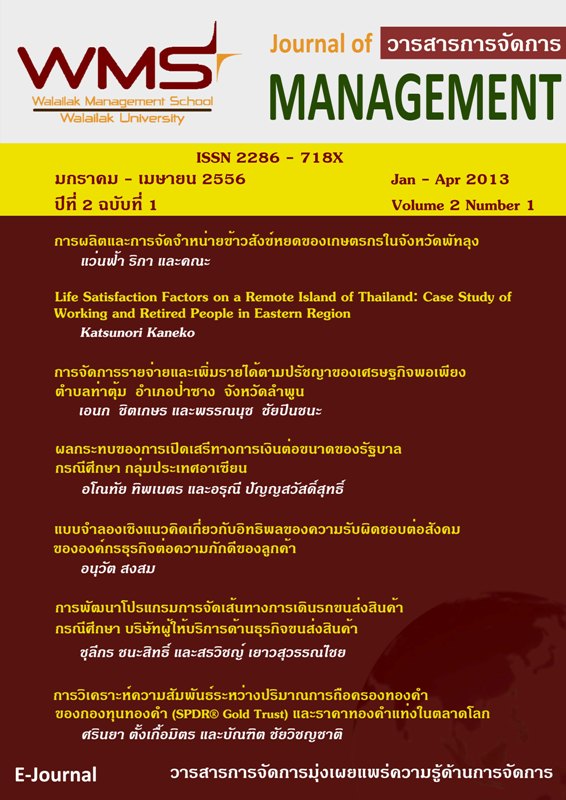Abstract
This study to examine obstacles ,and to analyze the factors leading to the success of the financial system within the household based on the analysis and synthesis of household expenditure and revenue account under the participation of the community. To analyze the factors that influence the success in expenditure management and increasing revenue with the sufficiency economy approach. To study and set the guidelines for the management of expenditure decrease and revenue increase based on the sufficiency economy approach. The research instruments are in-depth interviews, focus groups, and focus group brainstorming discussions. In addition, there is a community learning process which is created by visiting the best practice community and practicing the P-D-C-A cycle. This cycle consists of plan, do, check and act. This P-D-C-A cycle was implemented in 2 villages: Bann Saraphi Chai and Bann Rai Pa Ka, Tumboon Thatum, Amphur Pasang, Lamphun The result showed that the obstacle of household financial system was the stagnant of main income arriving from the products and cost and the extra income based on the agriculture had the low number of products with low quality, it could not fully increase the income. As of the expenses showed that the villagers had no clear understanding of expense behavior since they neglected the household record. Then, it caused the inefficient cost reduction plan. Analysis of the factors influencing the success of expense management and cash increase indicated as (1) the basic factors of the success are consisted of the personal factor with the basic understanding of self-sufficiency lifestyle and the community process factor and the strong leader and (2) the factors promoting success are consisted of physical community factor which is resources as well as wisdom leading to the income, The factor of effective community process management emphasizes more on community cooperation. It starts from forming committee, planning, acting followed the plan with monitoring as well as evaluating to the work improvement and the factor of integrated work of all level of organization. The aspect of the guideline for integrated expense and income management as Sufficiency Economy philosophy started from creating awareness and acceptance of the household account record, planning the activities for expense reduction based on the household account, acting as the plan with the community cooperation focused on resources and local wisdom, supporting the efficacy by develop new academic knowledge as the tools in activity driven, evaluating the activities for finding problems and obstacles, improving for the future work along with setting the rules in encouraging and supporting the continuous performance which can lead to the sustainable saving.


